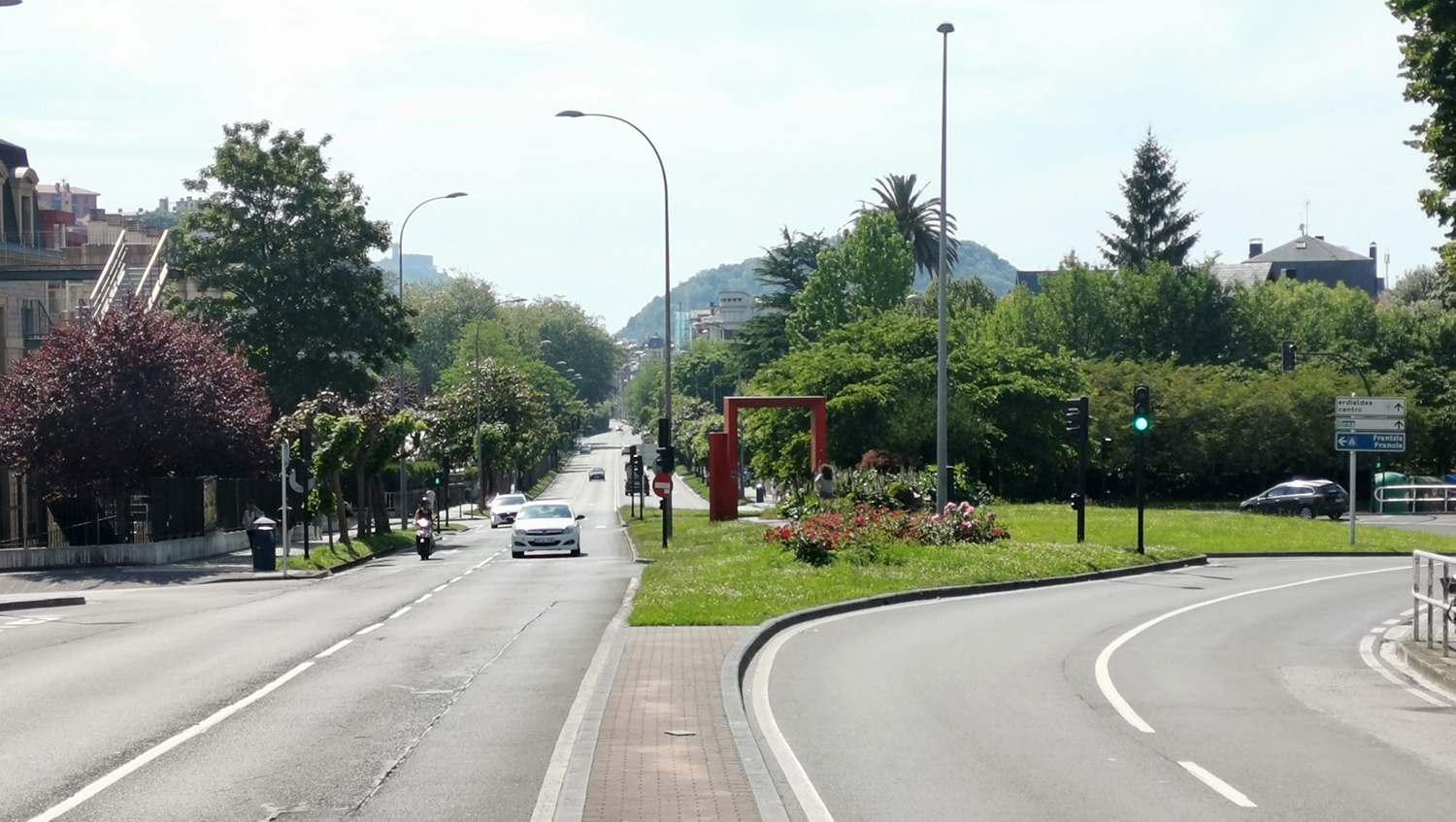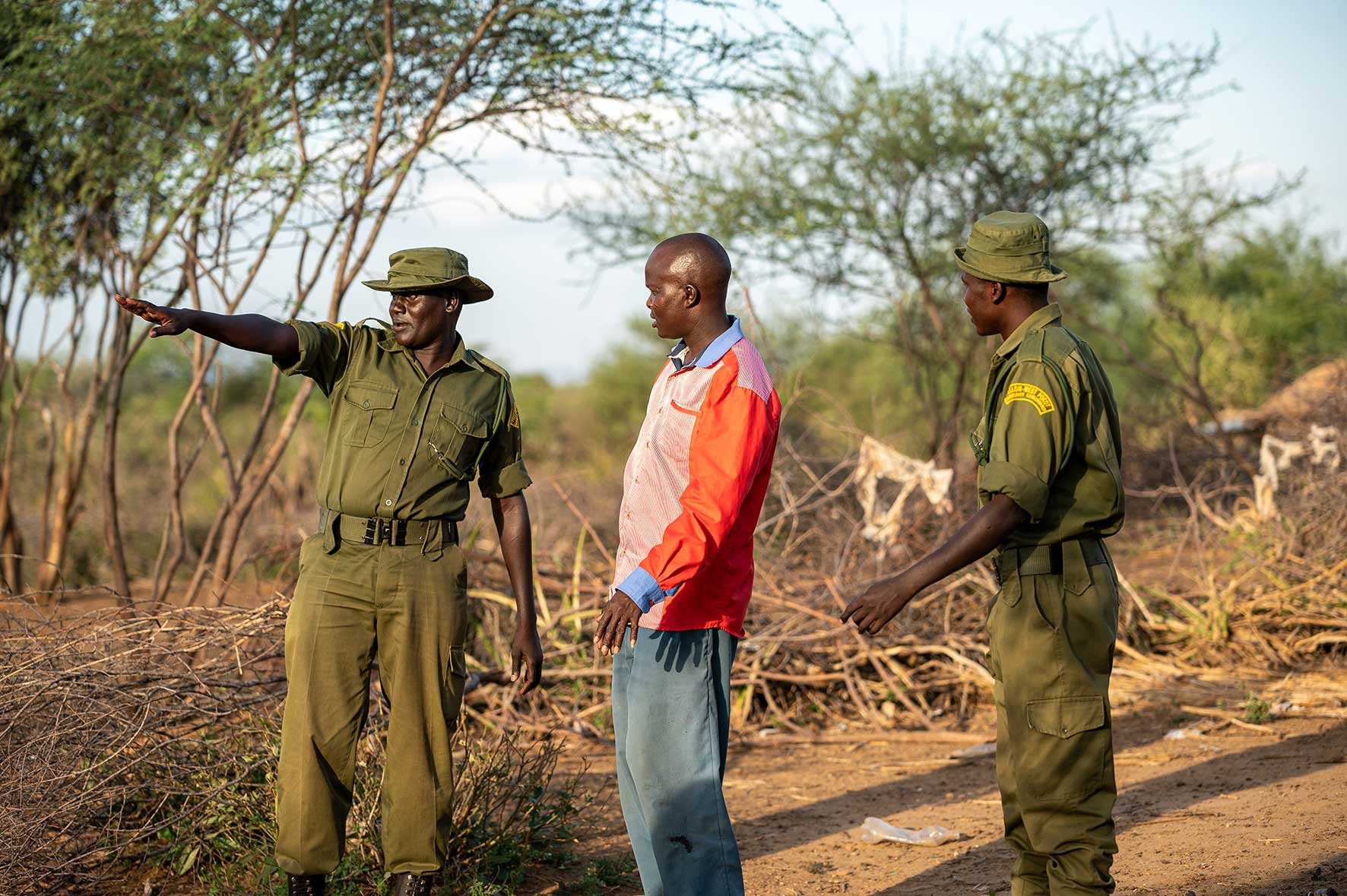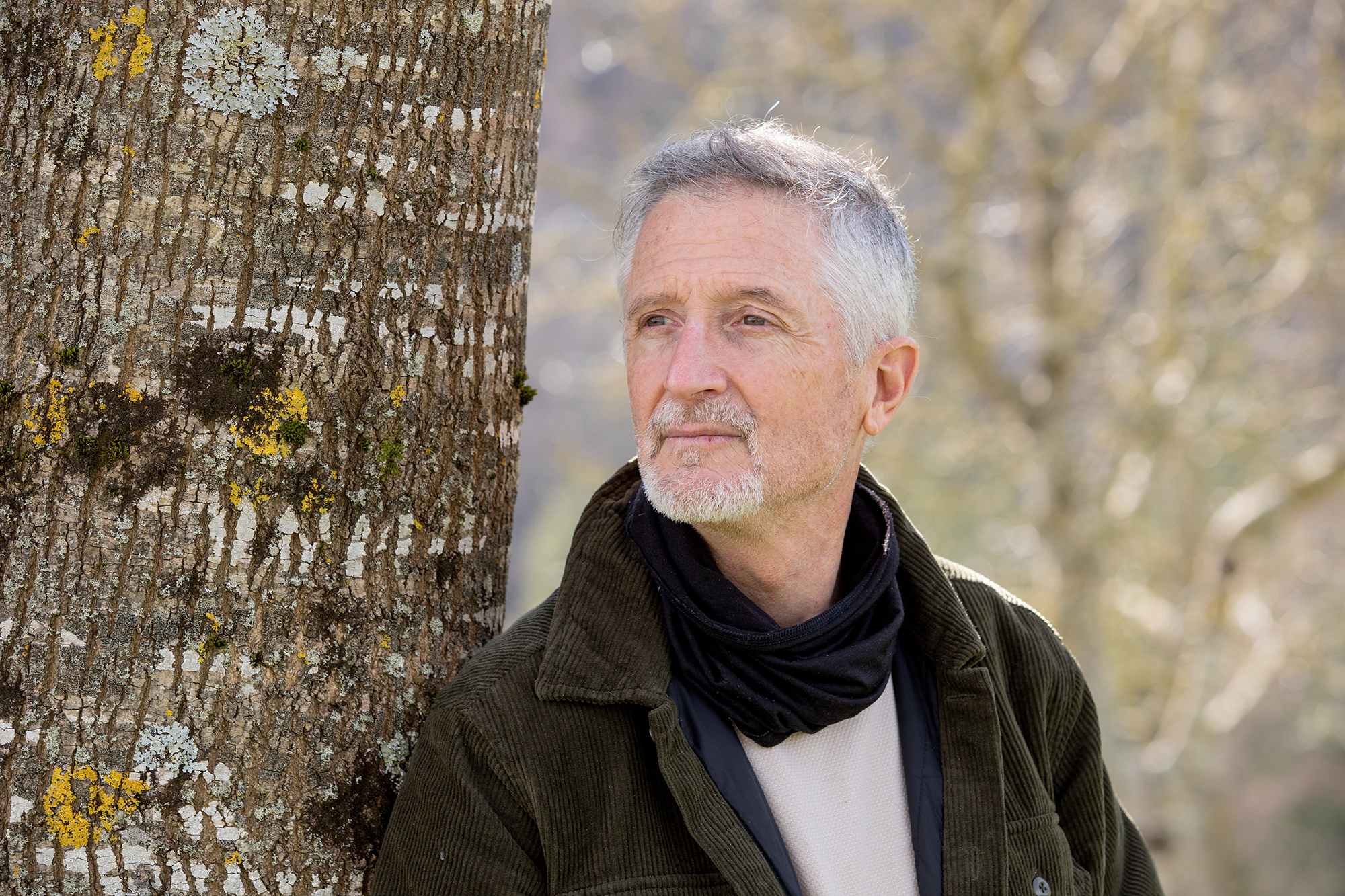"We will have to change our energy system to limit global warming like never before."
- Mikel González-Eguino is Gasteiztarra, but currently lives in Sopela. Its work centre is located on the Leioa campus, in the BC3 centre dedicated to climate change research. We have talked to him about the climate emergency, the very day an international strike is called for on this issue.

These days, we're hearing a lot about the expression climate emergency. What does it mean?
The population, the youth... is mobilizing around the world in the face of the seriousness of the situation. They listen to the messages of science and realize that they are already suffering from the effects of climate change, which are serious and that if no solution is sought they will be even more serious. Besides, there is little time to do something, that's why the emergency is. We need concrete, strong and urgent action, and not just long-term plans, as we have done so far.
Firm action, you say. Is it about decarbonising the economy?
On the one hand, and on the other, adaptation to climate change. In recent years it has been observed that the extreme effects of climate change are occurring more and more frequently: droughts, hurricanes... Climate change is already here, it's not a matter of the future. Moreover, it mainly affects the poorest countries, which have less resilience. We have to start adapting as soon as possible. Adjustment must be the component of all our policies so that future effects do not hit us so hard. On the other hand, we need urgent action to reduce CO2 and other greenhouse gases.
Short-term work, according to scientists...
Sometimes very long-term objectives are set. The Paris Convention states that by 2050 net gas emissions, i.e. the balance between what is emitted and what absorbs the Earth, should be zero. Compliance with the main objective of the Convention can thus be achieved: That global warming on Earth, from pre-industrialization times, does not exceed 2°C and, if possible, 1.5°C. But the change we have to make for that is brutal, momentous. The energy system must change like never before. And by 2050, we can make a lot of promises, but what are we doing in 2030 or in the next five years to make sure we're going on the right track? According to the IPCC group of scientists analysing climate change, we should reach the emissions summit next year and fall by half by 2030. It's a tremendous change, it's an urgent way to act.
How can that be achieved, how can we halve emissions?
Before the UN summit this week, Secretary-General António Guterres made four requests. One, that countries should bring concrete emission reduction plans to the summit by 2050. I think it would be better to ask for short-term plans, but ... The other requests from Guterres have been very specific. On the one hand, the elimination of aid for fossil fuels is enormous and much greater than that for renewable sources. Secondly, the creation of taxes on fossil fuels, from which states would somehow return their benefits to the public (e.g. by reducing other taxes) to invest in the field of renewable energy and energy efficiency. Finally, the UN Secretary made a very important request in the short term: No more coal plants will be built from 2020.
Is transport the key? Replacing fuels for vehicles with renewable sources seems to be the most difficult.
Transport is, of course, one of the most important fields. On the one hand, we must reduce the consumption of coal for the generation of electricity, which is still rising in some Asian countries. Data indicate that the price of renewable energy is already cheaper than that of coal in almost all countries of the world. We must speed up this process and prevent the construction of more coal-fired power stations. And on the other hand, it says that one of the keys is transport, which is where the increase in emissions is occurring in developed countries. Policies must be put in place to make the mobility model more sustainable. Public means of transport, walking, massive expansion of electric cars... And all of that in a very short time.
On the other hand, should limits not be placed on the most polluting and least alternative modes of transport? Aircraft, sea traffic...
There are currently no technological solutions for these modes of transport. I believe that the ideal is to combine both routes: on the one hand, to use these means of transport in a more responsible way and, on the other, to continue to seek technological solutions that will hardly allow for the total decarbonisation of these sectors. Such emissions, for example, should be balanced against carbon absorbed by forests. But that does not mean that we do not have to reduce the number of journeys as much as possible.
Regarding the electric car, there are many critical voices pointing out that it will hardly be an alternative to the current mobility parameters. I would like to say that it will not be enough.
I am optimistic about the ability to compete in the short term with conventional cars in terms of costs. Most technical studies on the subject indicate that by 2023-2025 the cost of an electric car and a conventional car will be the same. In addition, electricity is more energy-efficient and therefore cheaper in this respect. What is the challenge? Creation of a recharging infrastructure that is not yet available. But I believe that it will be possible to resolve it in the short term. And in this case too, transforming mobility is not just replacing one car with another, but we must complement it with measures such as promoting public transport.
We have already mentioned the recent UN summit in New York. What has been the result?
Expectations have not been met, but it has been an important quote because political, social, business leaders have gathered there to explain what they are going to do. It cannot be said that it has not served at all. It is true, in any case, that many summits are being held and that more decisive action is needed, that is what society and scientists are demanding. We need effective action or we will suffer consequences.
The main international agreement to combat climate change is the 2015 Paris Convention. But it's not binding.
It is an agreement that has been adopted with an overall view. Instead of forcing countries to reach a target (as in the Kyoto Protocol), it was decided to ask Governments what they are willing to do on climate change and then to measure whether those commitments are sufficient for warming not to exceed two degrees, or if possible, more than one and a half degrees. The framework is working to the extent that countries are proposing actions, but the sum of these actions so far is not sufficient to meet the Paris objectives. For the time being, given the promises of governments, warming would be three degrees, and that would be a tremendous disaster. That is why the UN summit was held this week, because there is a lack of courage at the summit.
Right now, global warming is 1.1 degrees from the pre-industrialization era.
And if we don't do anything, it'll be 1.5 in 10-15 years.
Is it still possible not to overcome this barrier? There are those who believe that they do not.
The IPCC says that it is physically possible, but that all greenhouse gas emissions should be suspended long before 2050. From a social and technological point of view, the change we would need in order to achieve this would be enormous. It's very difficult.
Antonio Turiel fisikari eta CSICeko ikerlariak aspaldiko urteetan ez bezala bete zuen Hernaniko Florida auzoko San Jose Langilearen eliza asteazkenean. Zientoka lagun elkartu ziren Urumeako Mendiak Bizirik taldeak antolatuta Trantsizio energetikoaren mugak izeneko bere hitzaldia... [+]
Klima aldaketaren eraginez, munduko lurralde gero eta gehiago idortzen ari dira, milioika pertsonaren jarduera eta bizimoduak kolokan ezarririk. Fenomeno horren frontean dago India erdialdeko Maharashtra estatua, non klimaren berotzeari eta lehortzeari metatu zaizkien oihan... [+]
Today’s Venice is built on an archipelago of 118 islands. These islands are connected by 455 bridges. The city is based on mud rather than Lura. Millions of trees in the area were cut down from the 9th century onwards to build piles and cement the city. Years have passed and... [+]
Lurrak guri zuhaitzak eman, eta guk lurrari egurra. Egungo bizimoldea bideraezina dela ikusita, Suitzako Alderdi Berdearen gazte adarrak galdeketara deitu ditu herritarrak, “garapen” ekonomikoa planetaren mugen gainetik jarri ala ez erabakitzeko. Izan ere, mundu... [+]
Eskola inguruko natur guneak aztertu dituzte Hernaniko Lehen Hezkuntzako bost ikastetxeetako ikasleek. Helburua, bikoitza: klima larrialdiari aurre egiteko eremu horiek identifikatu eta kontserbatzea batetik, eta hezkuntzarako erabiltzea, bestetik. Eskola bakoitzak natur eremu... [+]
Agintari gutxik aitortzen dute publikoki, disimulurik eta konplexurik gabe, multinazional kutsatzaileen alde daudela. Nahiago izaten dute enpresa horien aurpegi berdea babestu, “planetaren alde” lan egiten ari direla harro azpimarratu, eta kutsadura eta marroiz... [+]
Biologian doktorea, CESIC Zientzia Ikerketen Kontseilu Nagusiko ikerlaria eta Madrilgo Rey Juan Carlos unibertsitateko irakaslea, Fernando Valladares (Mar del Plata, 1965) klima aldaketa eta ingurumen gaietan Espainiako Estatuko ahots kritiko ezagunenetako bat da. Urteak... [+]
Nola azaldu 10-12 urteko ikasleei bioaniztasunaren galerak eta klima aldaketaren ondorioek duten larritasuna, “ez dago ezer egiterik” ideia alboratu eta planetaren alde elkarrekin zer egin dezakegun gogoetatzeko? Fernando Valladares biologoak hainbat gako eman dizkie... [+]
Eskoziako Lur Garaietara otsoak itzularazteak basoak bere onera ekartzen lagunduko lukeela adierazi dute Leeds unibertsitateko ikertzaileek.. Horrek, era berean, klima-larrialdiari aurre egiteko balioko lukeela baieztatu dute, basoek atmosferako karbono-dioxidoa xurgatuko... [+]




















_Glaciar.png)